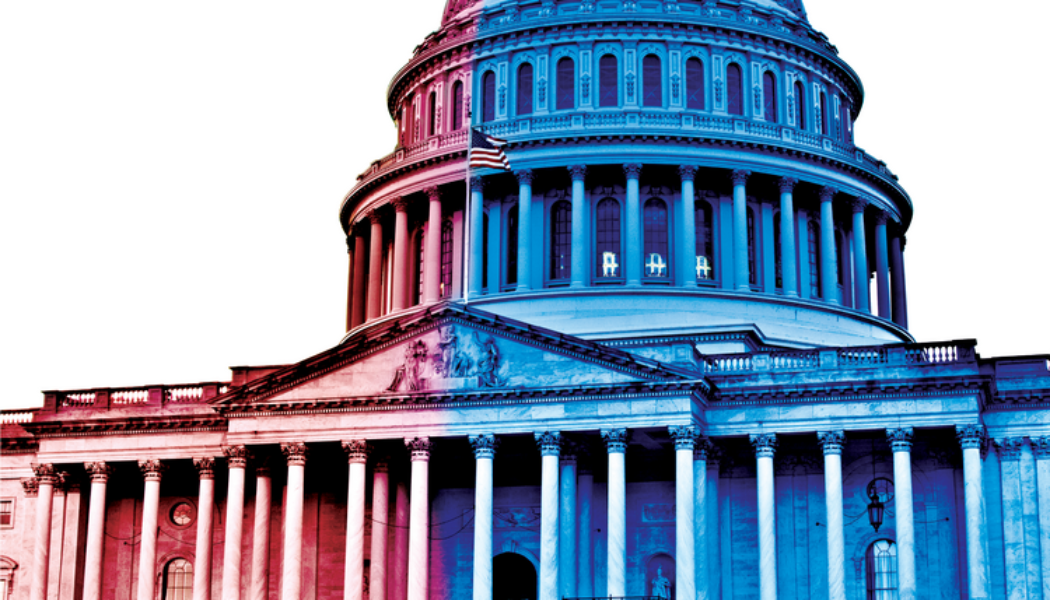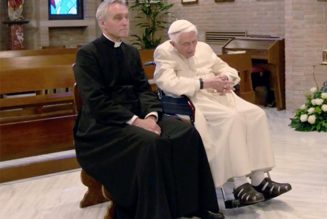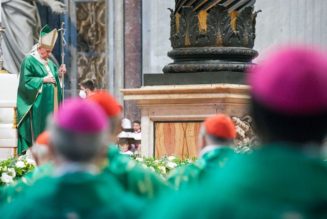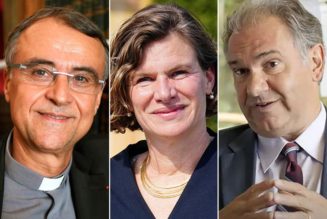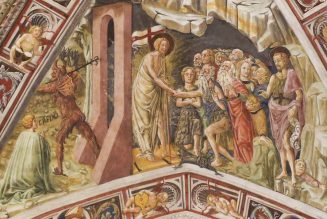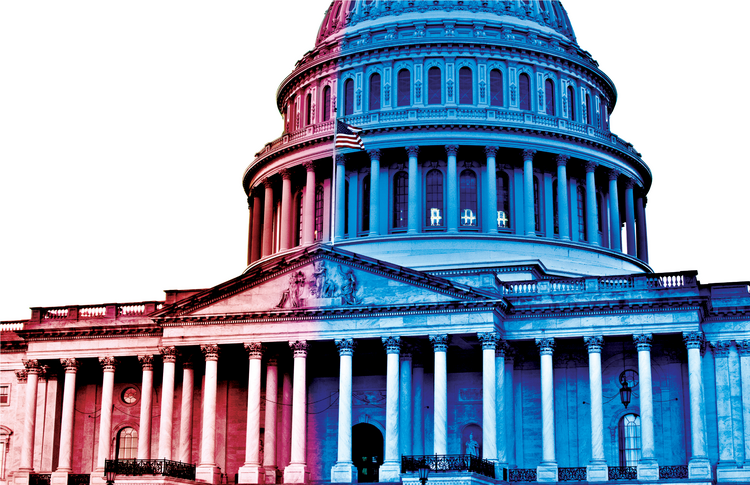
One year after the most divisive elections in at least 50 years, there is little evidence that distrust and animosity laid bare by that bitter contest—and its horrific aftermath on Jan. 6—are going anywhere. Americans remain divided over longstanding culture war issues like abortion and climate change and more recent issues such as the best policy response to the ongoing pandemic.
But for an increasing number of Americans today, party affiliation is connected to more than policy preferences. It is a moralized social identity where members on each side view those on the other side with contempt. Americans are pushed by the culture to make a binary choice—Democrat or Republican—and then conform themselves to every belief of their party. This is not tribalism but sectarianism. It determines not only how we vote but where we live, who we marry and how we worship.
Having served for 16 years in the U.S. House of Representatives as a pro-life Democrat who was deeply committed to bringing people together across the divide to serve the interests of my constituents and the country, I have an intimate understanding of the impact of sectarian partisanship. From the time I entered Congress in 2005, the widening policy gap between the parties made bridging differences to forge legislative compromises increasingly difficult, and the leftward move by many Democrats left me more ideologically isolated. But the rise of sectarian partisanship rendered Congress almost completely incapable of performing its constitutional duties. It also caused my figurative branding as a heretic within the ranks of the Democratic Party, which led to my loss in the 2020 Democratic primary.
Americans are pushed by the culture to make a binary choice—Democrat or Republican—and then conform themselves to every belief of their party.
While Americans do not seem to agree on much, they do agree we are divided. In a poll conducted for The Wall Street Journal and NBC News in October 2018, 80 percent responded that the country was divided, including 85 percent of Democrats and 73 percent of Republicans. An even greater number—90 percent—said the division between Democrats and Republicans is “a serious problem.”
Why does this divide seem so dangerous to Americans? We have had these same two parties battling each other in election after election for about 160 years. But today, there has been a fundamental change in the nature of partisanship. It is now rooted in many people’s social identity. Research published in 2019 in The American Journal of Political Science showed that political identity is so powerful for some people that it can determine or change not only their policy preferences but also their self-identified religion, class or sexual orientation.
The extreme policy divide between the parties on many issues makes policymaking very difficult, but sectarian division makes policymaking virtually impossible: The process—even on seemingly nonideological issues such as transportation policy—is viewed as a zero-sum, identity-based competition in which winning, not forging the best policies possible, is the primary goal. The ensuing congressional gridlock leaves a power vacuum filled by presidents who act beyond their constitutional power, as well as by activist courts and an unelected administrative state. Sectarian partisanship has also led to questions from both sides about the legitimacy of elections, lawmaking and the actions of elected officials. These have been used as excuses for misuse and abuse of institutional power inside government and have inspired mob activities on the outside.
Today, there has been a fundamental change in the nature of partisanship. It is now rooted in many people’s social identity.
If we do not find a way to restore the public square and reform government institutions so that people on both sides are willing to work with each other—through debate, argumentation and compromise—the republic created under our Constitution cannot survive.
A Life of Public Service
In November 2004, I was elected to the U.S. House of Representatives from Illinois’ Third Congressional District, the seat vacated by my father, Congressman William O. Lipinski. The district included the southwest side of Chicago and southwestern suburbs close to the city boundary. In 2012, it moved a little farther southwest into some more outlying areas.
Forty years ago, the political ideology of “Chicago Democrats” ranged all the way from very liberal to fairly conservative. My district was known in the 1980s for being home to many “Reagan Democrats”: blue-collar voters who were pro-life, anti-communist and concerned about high taxes and crime. They called themselves Democrats but had no problem voting for a Republican. Many went to Catholic schools. When I was elected, the number of Reagan Democrats had dwindled, but it was still significant. And there was no question that Catholicism influenced their politics.
My district was known in the 1980s for being home to many “Reagan Democrats”: blue-collar voters who were pro-life, anti-communist and concerned about high taxes and crime.
My life in politics was grounded in the conviction that our personal relationship with God gives us our primary identity. We have many different identities: in our family, our job or profession, or as a member of a club, sports team or a political party. But as Jesus taught us, sometimes in stark ways (as when he told the man who wanted to follow him that he could not take the time to bury his father), God must always come first.
It is from this identity that the mission of any Christian should flow. What was my mission as a congressman that followed from my Catholic identity? It was to work for policies that served the common good, as explained in the deep and rich teachings of Christ and the church and understood through prayer and reason.
The Catholic Church offers many gifts that we too often take for granted. One of these is a rich tradition regarding the pursuit of the common good: Catholic social teaching. The U.S. bishops have highlighted seven themes of this teaching: life and dignity of the human person; call to family, community and participation; rights and responsibilities; option for the poor and vulnerable; dignity of work and the rights of workers; solidarity; and care for God’s creation.
We have guidelines for what it means to put Christ’s teachings into action, and we cannot just pick and choose which teachings we like.
My life in politics was grounded in the conviction that our personal relationship with God gives us our primary identity.
These themes do not directly tell us what policies to support or oppose. The one theme that has the clearest line to public policy on some particular issues is the first: life and dignity of the human person. The U.S. bishops state that “human life is sacred and that the dignity of the human person is the foundation of a moral vision for society. This belief is the foundation of all the principles of our social teaching.” They identify abortion and euthanasia as two direct threats to human life and dignity. That is why it is critical that Catholics support policies that oppose so-called abortion rights and euthanasia.
As I began my first term in Congress, I knew I was always going to oppose the position of a majority of Democrats when it came to abortion, and that I would have disagreements with many of my colleagues over issues like marriage and religious freedom. I knew it would be a bit of a challenge for me, but I did not believe it would be a major hurdle to getting re-elected or being an effective representative if I worked hard and took care of my constituents.
My record in Congress was strongly pro-life and strongly pro-union, as well as pro-environment and pro-defense. I was not in line with the Democratic Party on every issue, but I was initially considered to be just another blue-collar Democrat. I co-sponsored just about every pro-life bill introduced, and I voted for every one that got to the House floor. I eventually became the Democratic co-chair of the Congressional Pro-Life Caucus. I strongly and vocally defended the Religious Freedom Restoration Act on the House floor and other legislation to support religious liberty, including conscience protections for everyone, including the Little Sisters of the Poor and health care workers, in the face of Obamacare’s contraception mandate. I was the only Democrat to vote for a bill that created the Opportunity Scholarship Program in Washington, D.C., to provide scholarships for poor families to give them the choice to send their children to private schools.
As I began my first term in Congress, I knew I was always going to oppose the position of a majority of Democrats when it came to abortion.
But on many issues, I voted as you would expect a Democrat to vote. My vote aligned with the position favored by the A.F.L.-C.I.O. federation of unions more than 90 percent of the time. I voted 90 percent of the time with the League of Conservation Voters on environmental issues. And my grade from the National Rifle Association was an F.
This voting record vexed many people. I simply saw it as keeping true to my mission of pursuing policies that served the common good. A few times I had someone come up to me in my district and say, “I know, you vote Catholic.” Sometimes it was a criticism. Sometimes it was a compliment. But for some it seemed to have been a “Eureka!” moment, where they figured out the coherence behind what the rest of the world saw as an incoherent voting pattern. Many people could not understand someone who did not fit neatly with either side.
Despite this, and despite having opponents in the Democratic primary every two years who attacked me for being pro-life and at times straying from the party line, I did not have too much trouble repeatedly winning re-election as a “Catholic congressman.”
The Rise of Sectarianism
Something began to change around 2009, soon after the election of Barack Obama as president. The congressional battle over the Affordable Care Act, popularly known as Obamacare, was pivotal in many ways. The Republican Tea Party movement began and quickly built grass-roots strength. Republican members of Congress who were seen as moderates or bipartisan began to be purged from the party in primary elections. A good friend of mine from South Carolina, Bob Inglis, lost his Republican primary because he said he believed climate change was real and that Congress should enact policy to counter it.
For me, the A.C.A. debate was the first time that I stepped forward on the national stage as a pro-life Democrat. I was part of a group of Democrats who held back our votes on the A.C.A., trying to get changes made that would prevent taxpayer funding of abortion. In the end, every Democrat who had supported the effort to get the abortion funding language changed wound up agreeing to vote for the bill in exchange for an executive order meant to restrict federal funding for abortions, which I believe was simply a fig leaf. I held out and voted no. In the 2010 and 2012 elections, a good number of pro-life Democrats lost, and the Democratic Party took an extreme turn on abortion.
In the 2010 and 2012 elections, a good number of pro-life Democrats lost, and the Democratic Party took an extreme turn on abortion.
With the election of Donald J. Trump in 2016, sectarianism ramped up in a major way on both sides, and my life as a Democratic congressman changed drastically. Associating someone with President Trump was the easiest and most powerful weapon anyone could use to cause that person to lose the support of Democratic voters. I had not changed my voting pattern significantly. But Democrats had moved further to the left, Republicans got behind Mr. Trump, and it was no longer acceptable to step out of line.
Over the years there were fewer and fewer pro-life Democrats in Congress, until we were down to only a couple in 2017. By that point, my pro-life position was an easy issue to use to link me to President Trump. NARAL, Planned Parenthood, Emily’s List and other pro-abortion groups I never heard of, along with the Human Rights Campaign and the Chicago Teachers Union, poured more than $3 million into the primary campaign against me to paint me as a DINO, a Democrat in Name Only. I was almost always labeled “conservative” and sometimes “one of the most conservative” Democrats in the House by the news media, despite voting with Democrats about 90 percent of the time.
Then, in December 2017, I was invited along with a bipartisan group of House members and U.S. senators to the White House to watch a movie with President Trump. These were private events that everyone knew should be kept private, but Senator Joe Manchin, a Democrat who needed to show his constituents in West Virginia that he talked to the president, posted on social media a picture of himself shaking the president’s hand. In the background of that photo, you can see me sharing a laugh with then-Speaker of the House Paul Ryan.
The photo quickly made the rounds on social media, with the comment that I was at the White House to celebrate the passage of the Republican tax bill—a bill I had voted against. The media picked up on the picture and characterized it as showing that I “had friends in the White House.” Eventually, it showed up on a TV commercial to demonstrate that I was a “Trump guy.”
After a very narrow (51 to 49 percent) victory in the Democratic primary that March, I knew that my seat would be at great risk in 2020, and that the same person would run against me again.
In the next year, sectarianism in the Democratic Party and the purging of those perceived as deviating from the strict party line only got worse. Politically speaking, I became a heretic in 2019, when the party took an even stronger stand for legal abortion. My pro-choice opponent was endorsed by a number of my Democratic colleagues in Congress, some local Democratic office holders and five Democratic presidential candidates. Locally, some Democrats who had endorsed me previously were obviously getting cold feet about supporting me. No one felt that they could get close to me for fear that they would be hurt politically by the association. And, of course, outside money kept pouring in to my opponent.
I did not back down from being outspoken in protecting life.
I did not back down from being outspoken in protecting life. I spoke at the March for Life in Washington, D.C., and in Chicago. In Congress, I was the lead Democratic co-sponsor of the No Taxpayer Funding for Abortion Act and the Pain-Capable Unborn Child Protection Act, and sought to bypass Speaker Nancy Pelosi to bring the Born-Alive Abortion Survivor Protection Act to the House floor.
When the votes were finally counted the day after the Democratic primary, a day before everything in Illinois shut down because of the pandemic, I suffered a narrow defeat.
Lessons Learned
My experiences have taught me that America will overcome sectarian partisanship only if enough people have the courage to choose to reject it in the public square. I believe Catholics are uniquely gifted to do this. But it will happen only if Catholics have the courage to reject political orthodoxies and be Catholic first.
I understand that Catholics are not immune from the temptations of partisan sectarianism. There are Catholics on both sides of the aisle who seem to put party before faith. Nor am I saying that Catholics have to reject both of the major parties and all candidates from both parties. If you are going to get involved in politics, you usually need to choose one of the two major parties to be affiliated with. If you are voting, in most races you need to choose a candidate from one of these two parties.
I will never claim to have been perfect in everything I did as a Catholic member of Congress. But if I had not put my faith first and embraced its unique gifts, I cannot envision how I could have avoided fleeing to the political safety of sectarian partisanship and becoming part of the problem.
Because I knew what was at stake, I did not succumb to sectarianism. It was not easy. I was increasingly an outsider in my own party. I knew that I was sacrificing personal ambition, because my stance prevented me from rising in the Democratic Party. I eventually came to recognize that I was risking electoral defeat.
I eventually came to recognize that I was risking electoral defeat.
What inspired and enabled me to take this difficult path? God’s grace and unique gifts that I, and every Catholic, receive from our faith. Those gifts include:
• A strong primary identity as a child of God, which provides a spiritual and social mission and lessens the susceptibility of turning to partisan sectarianism for a mission and an identity.
•A belief that the foundation of a moral vision for society is the inherent dignity of every individual; respect for that dignity must guide not only policy positions but interactions with others. This is the antithesis of sectarian behavior, which involves scrutinizing every person with an opposing view in order to find anything that can be used to make the case that that person deserves to be treated with disdain.
• Well-formed Catholic social teaching regarding the common good and social justice. This not only provides a guide to what it means to uphold the dignity of every individual when considering policy choices, it also provides an opening to finding common ground across the partisan divide—because Catholic social thought is partially embraced by each of the two parties.
Catholic Witness
The night of the election in 2020, when it looked almost certain that I would lose, I could not sleep. I thought all night about how my life for 16 years had revolved around my job as a member of Congress. It can be all-encompassing when you put your whole heart, mind and soul into it. All of a sudden, I knew that was all going to be gone. What would my life revolve around on a daily basis? What would my identity be?
But the next day, I remembered. It started as I was writing my concession speech. That morning, someone suggested to me that I needed to be prepared to answer this question from the media: “Looking back, would you have done anything differently?” He said the reason they would ask this question, in three or four different ways, was to try to get me to say, “I should not have stuck with my pro-life stance.” I decided that I needed to answer it in my statement before it was asked, so I said the following instead:
I have always said that I would never give up being pro-life and standing up for babies in the womb. [My wife] Judy and I, and tens of millions of Catholics, hold and live this. But it is not just based on religious belief; it is based on science, which shows us that life begins at conception. Knowing this, I could never give up protecting the most vulnerable human beings in the world, simply to win an election. My faith teaches, and the Democratic Party preaches, that we should serve everyone, especially the most vulnerable. To stand in solidarity with the vulnerable is to become vulnerable. But there is no higher calling for anyone.
After that press conference—and with the help of the calls, texts and emails that flowed in from many Catholics afterwards—I felt more at peace than I ever imagined possible after a defeat. I had never worked harder on anything in my life than that campaign, and really for the three years leading up to the 2020 primary. I lost a job that was a great honor and privilege. But what I lost was nothing compared to what I have. I was tested by fire, and though I was not perfect through the whole ordeal, in the end I was—and am—Catholic first. I am hopeful, even though I did not succeed, that through my witness more Catholics will come to see that with faith and reason, wisdom from Scripture and tradition, unceasing prayer and God’s grace, we can defeat this culture of contempt and save the American republic.
Join Our Telegram Group : Salvation & Prosperity
